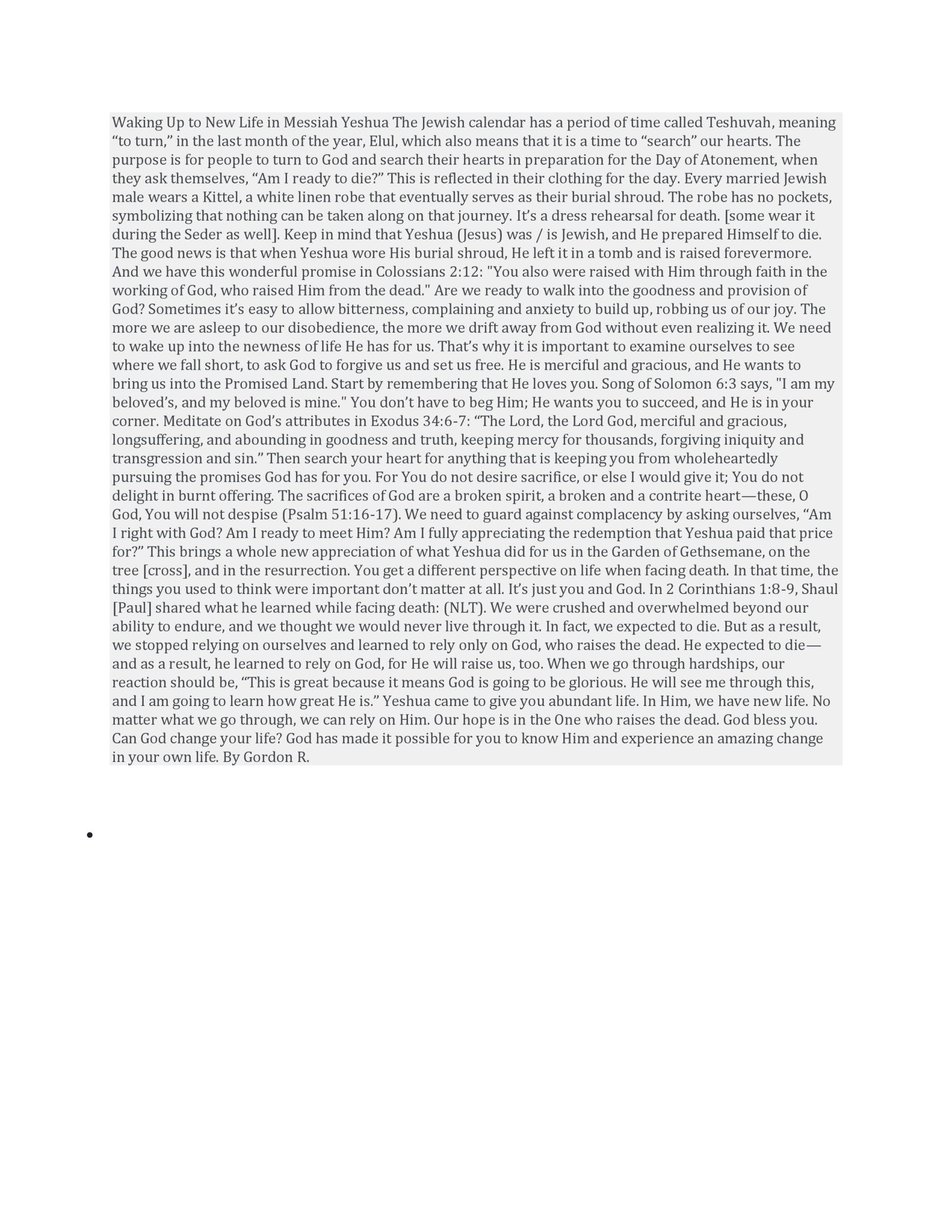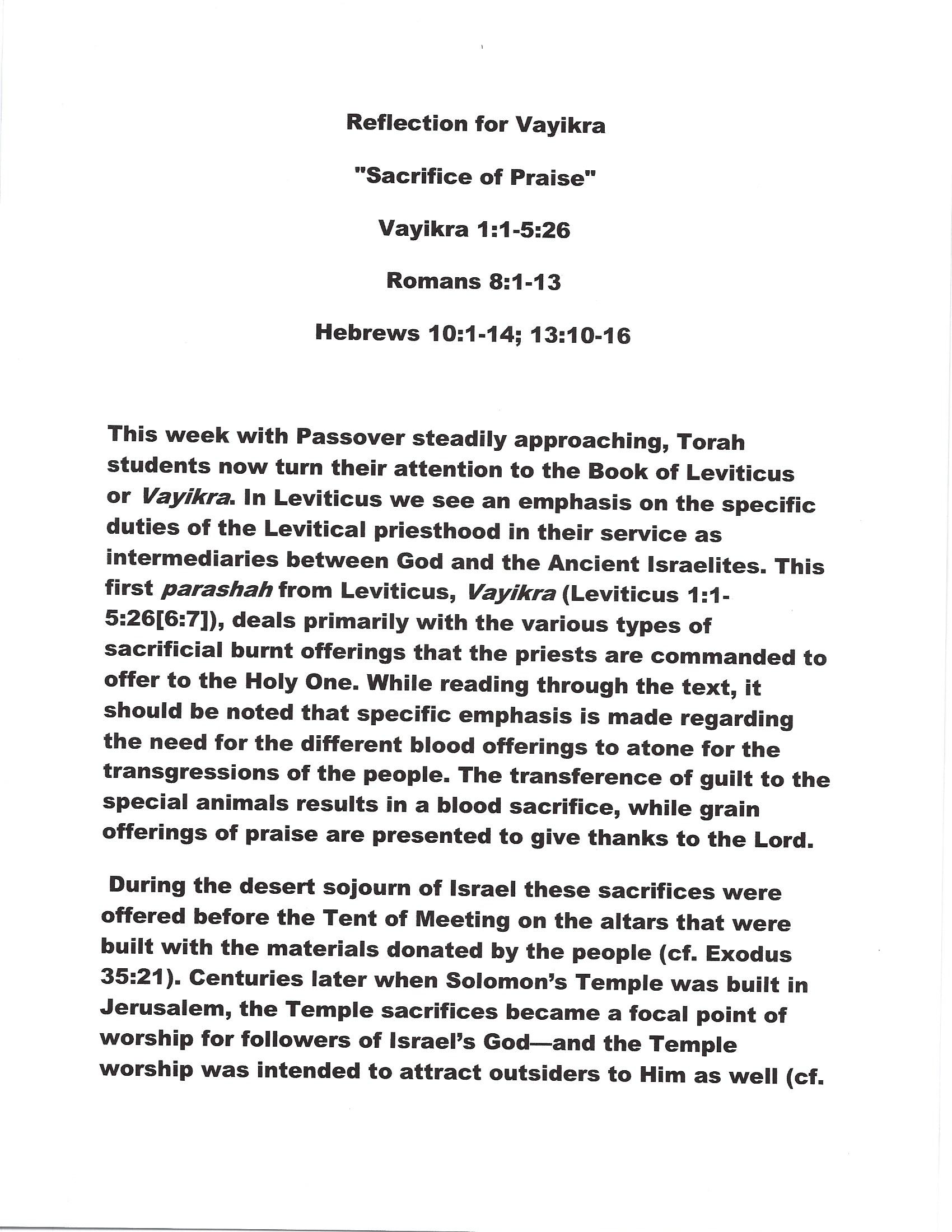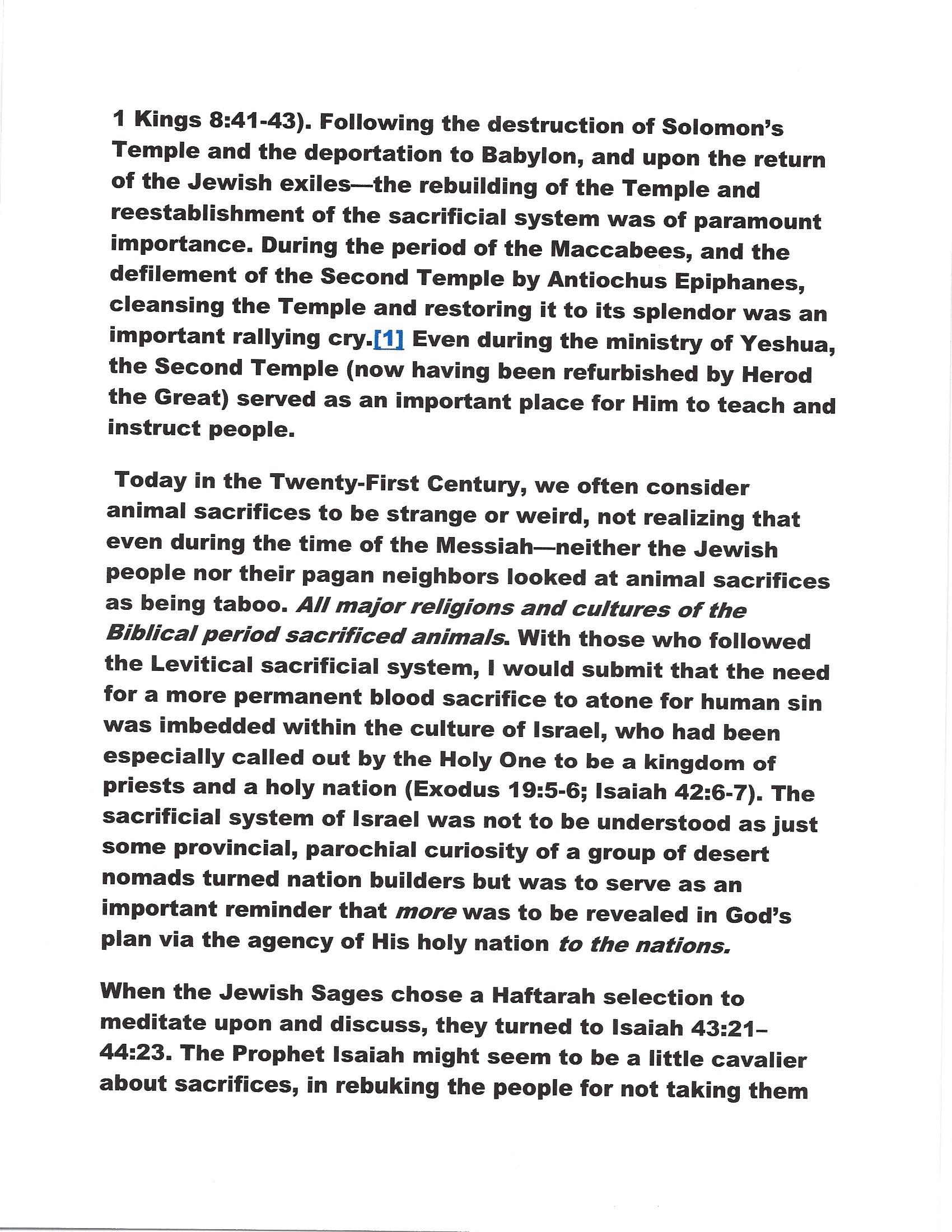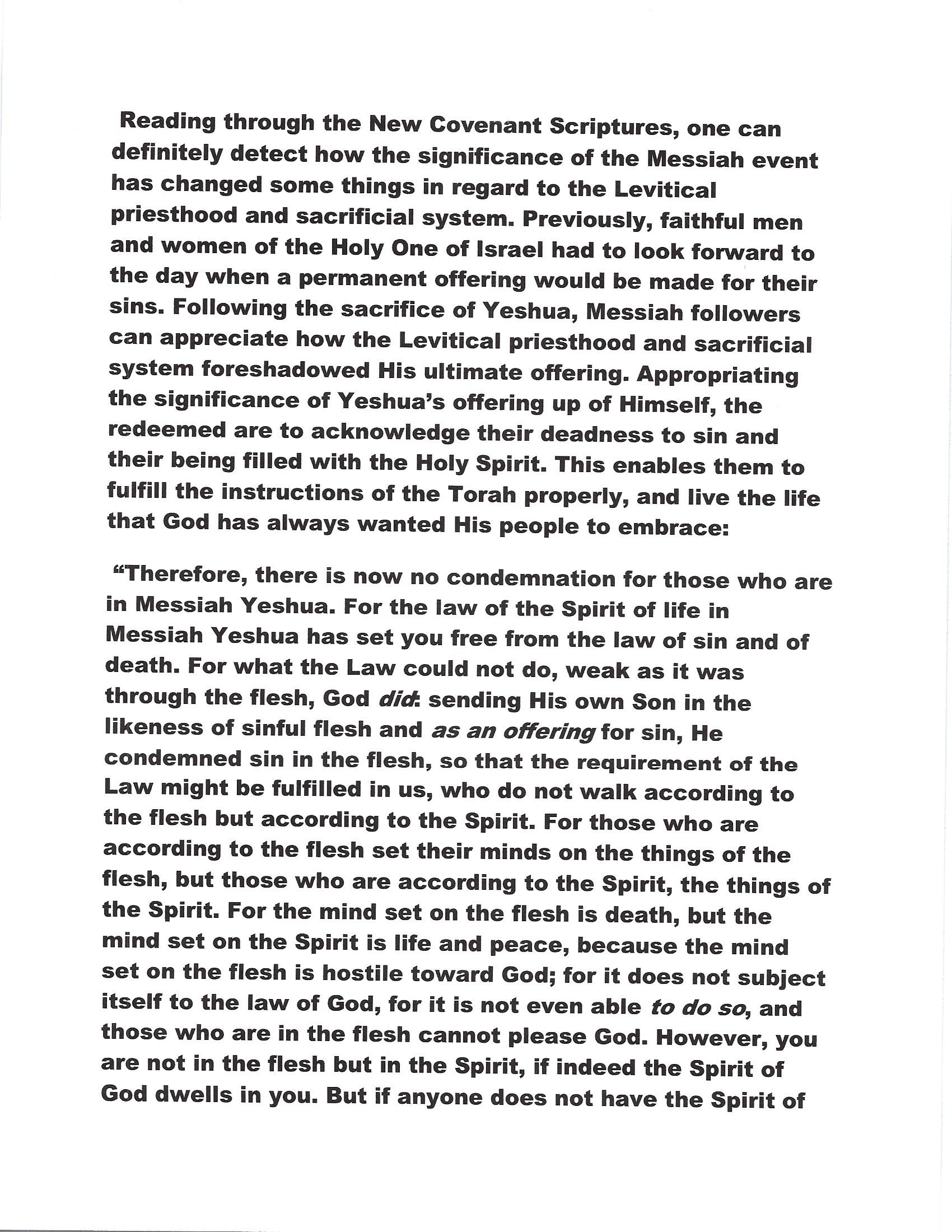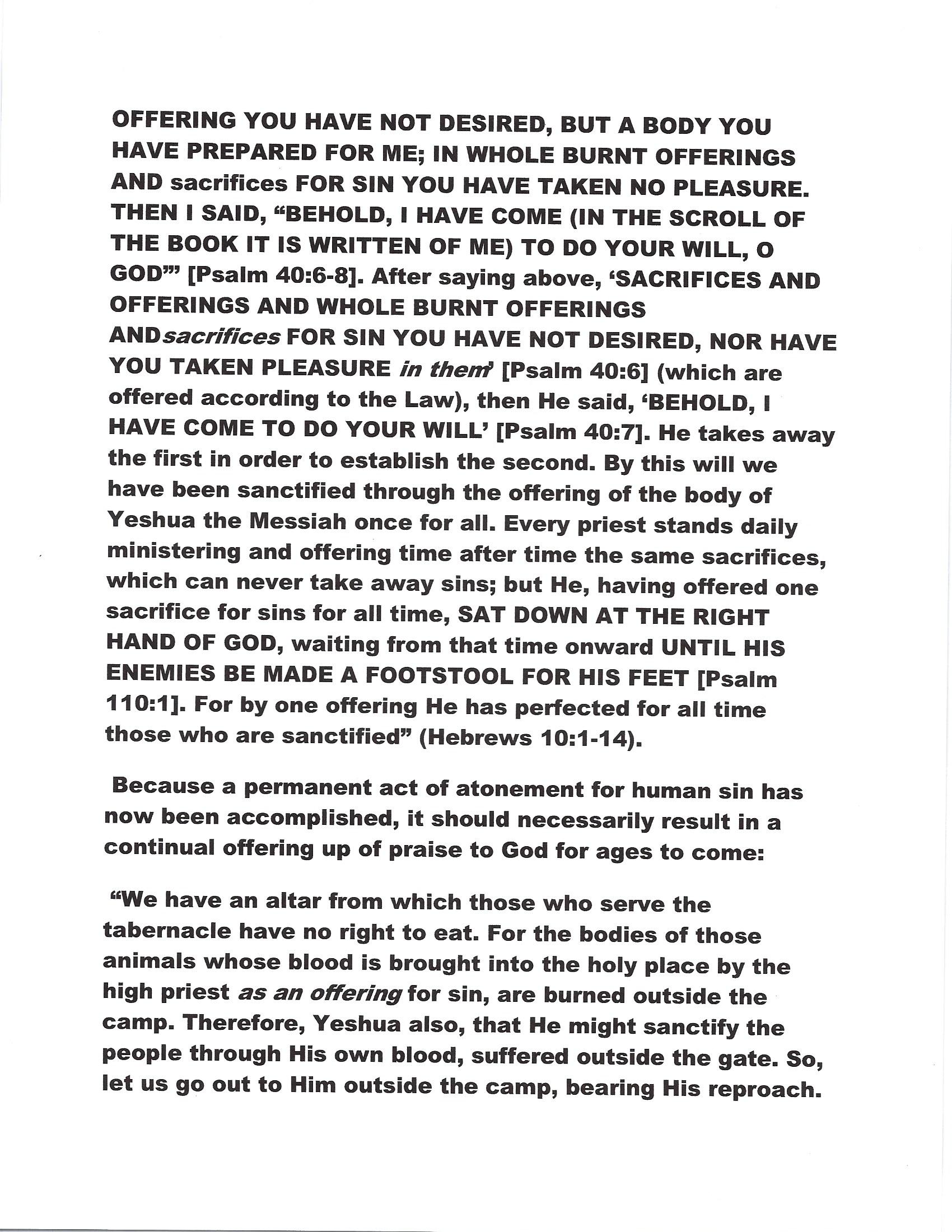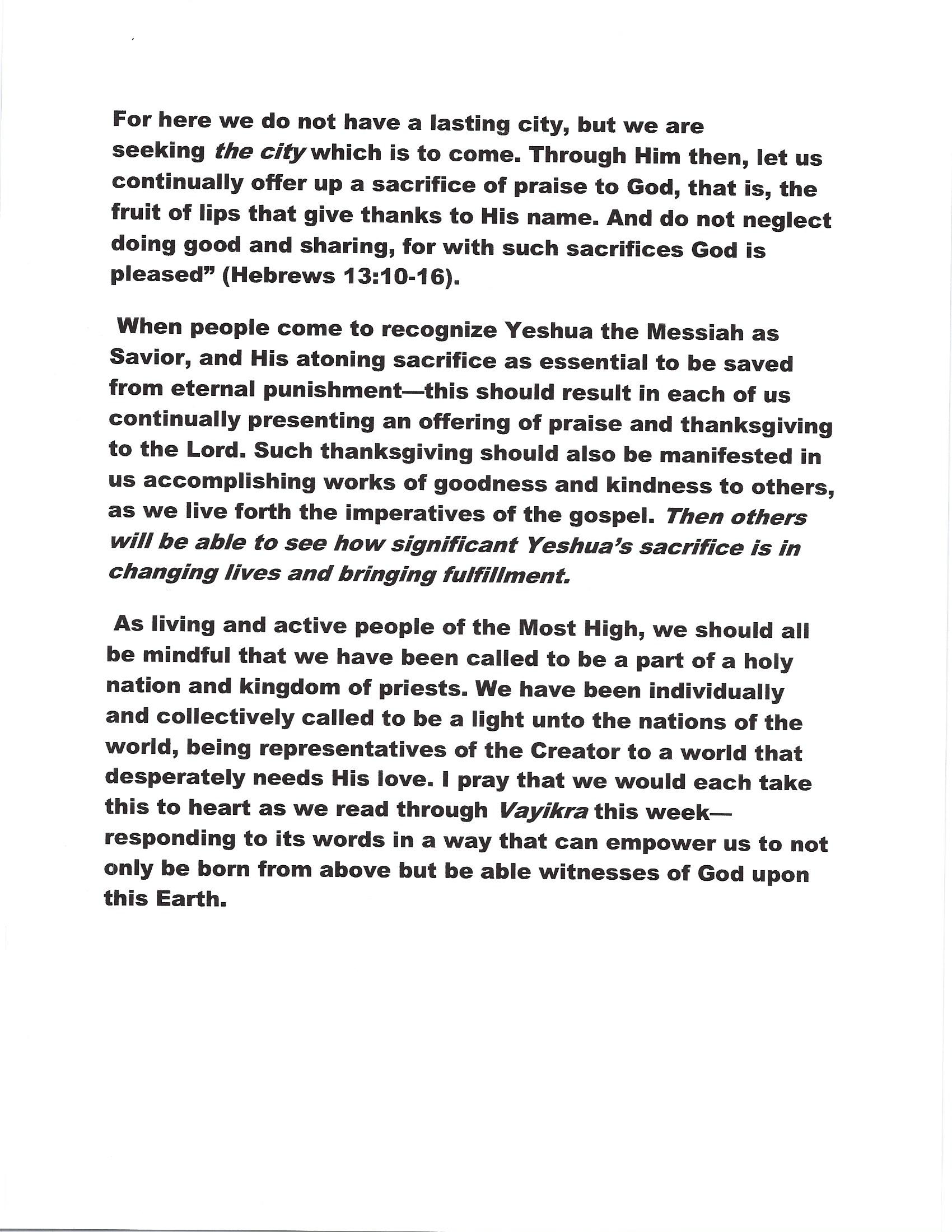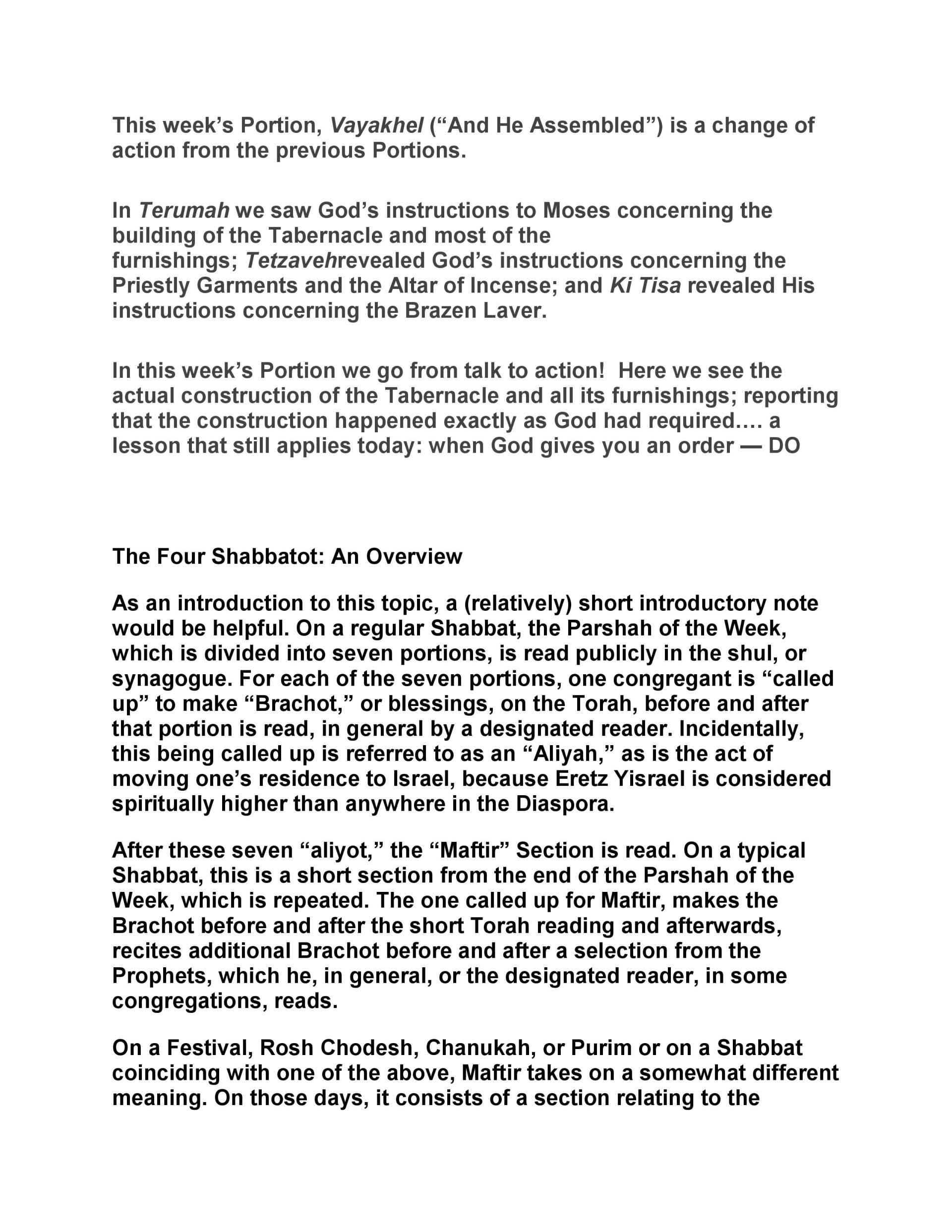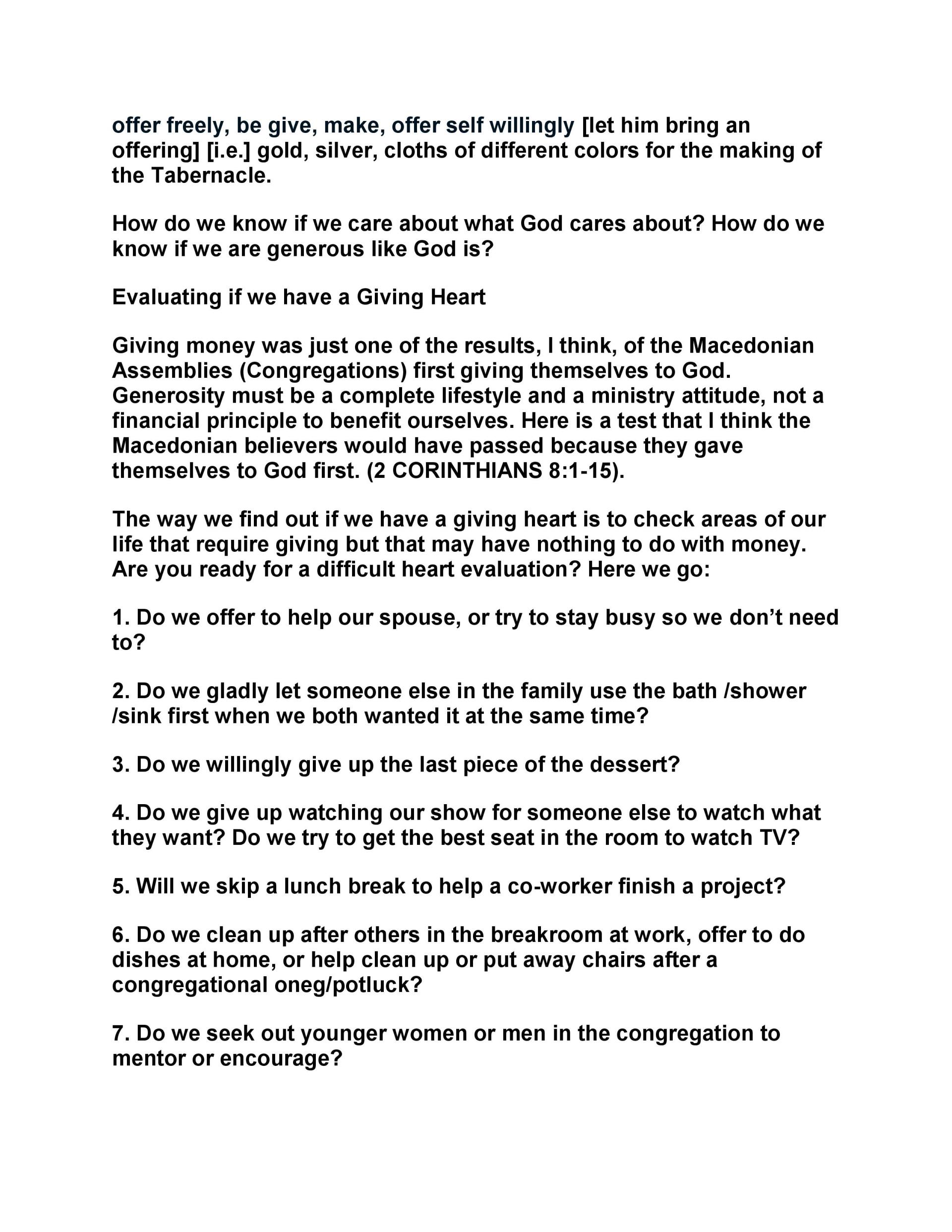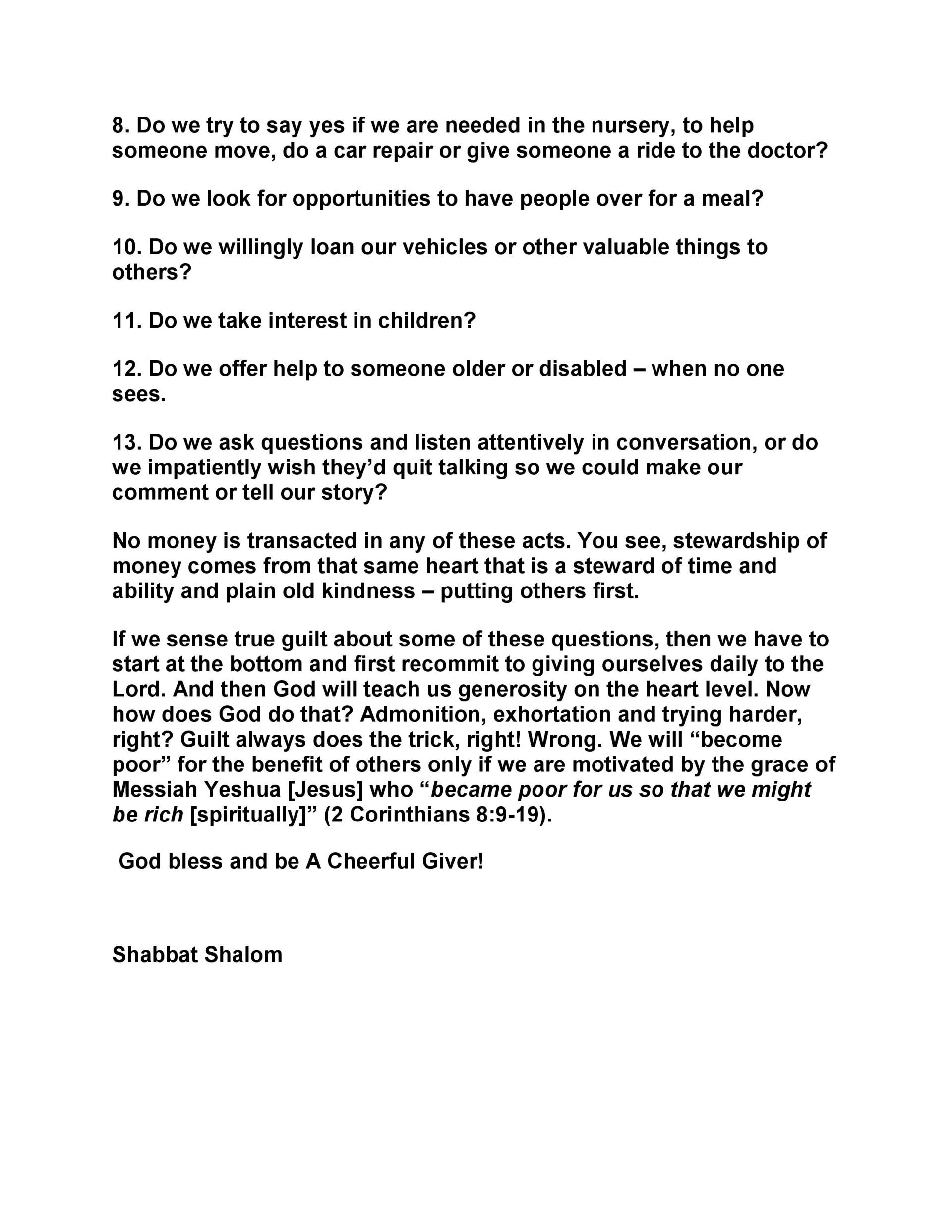Teachings

Be sure to subscribe to our new YouTube page. We should have our service streaming live on both facebook page, our website and YouTube next week. You can see it on facebook..live or as a video when service ends.
Be sure to follow and subscribe.
We hope you are safe out there.
Shabbat Service is 10:30 am.
https://www.youtube.com/channel/UCor9boRICfALFezBziAfdWg
Vayikra--Leviticus 1:1-5:26
Haftorah Isiah 43:21-44:23
Romans 8:1-13; Hebrews 10:1-14; Hebrews 13:10-16
The Book of Leviticus properly called by the Hebrew name Vayikra. "He called, "which is its first word, Leviticus is known formally as Torat Kohanim, "instructions for the priests".
This title defines Leviticus as a prescription for the proper worship of the God of Israel.
The prophet Micah poses the question, what is the proper way to worship God. He answers it by emphasizing the primacy of justice and love, ultimately desired by God more than sacrifice.
Leviticus 19:2 gives a more specifically priestly answer to Micah's question: "You shall be holy, for I, the Lord your God, am Holy". How Israel (we) are to live as a holy nation (The Body of Messiah) is instructed in Leviticus.
Leviticus is a difficult book for a modern person to read with reverence and appreciation. It's main subject matter---animal offerings and ritual impurity---seems remote from contemporary concerns. Yet almost half of the 613 mitzvot (commandments) of the Torah are found in this book, the text with which young children traditionally begin their Jewish education.
Our concern in reading Leviticus should be more than historical ("this is what our ancestors used to believe and practice"). It should be an effort to understand the religious needs that were met by these practices in ancient times, needs that we still confront today, and the religious ideas that were taught in the process.
The modern temper tends to discount prescribed ritual in favor of spontaneous religious expression. Yet something in the human soul responds to ritual, whether it be the formality of a traditional wedding or the rituals of a sporting event or a public meeting. Their is something comforting about the familiar, the recognizable, the predictable. Their is something deeply moving about performing a rite that is older than we are, one that goes back beyond the time of our parents and grandparents.
At crucial times, it is important for us to know that we are "doing it right."
There is power in the knowledge that we are doing what generations of people before us have done in similar situations, something that other people in other places are doing at the same time and in the same way.
Rituals, including prescribed prayers, tell us what to do and say at times when we cannot rely on our own powers of inspiration to know what to do or say. "Ritual is a way of giving voice to ultimate values. Each of us needs a sense of holiness to navigate the relentless secularity of our lives". Like the ancients, it should be gratifying to know what to do when we want to approach God at crucial moments of our lives, in our needs or in gratitude.
Although Leviticus outlines the technical procedures for the various offerings, the Book of Psalms offers us insights into the spiritual emotional dimension of the sacrificial system. In Psalms, it becomes clear how privileged the Israelite worshiper felt to be able to come into God's presence. :O God, deliver me by Your name, by Your power vindicate me.
Then I will offer You a freewill sacrifice" (Ps.54:3,8).[Artscroll edition]. [Regular English bible read 54:1-7].
"O people, bless our God, ...I enter Your house with burnt offerings, I pray my vows to You." (Ps.66:8,13). "One thing I ask of the Lord, ...to live in the house of the Lord / all the days of my life, / ...I sacrifice in His tent with shouts of joy" (Ps.27:4,6).
Shabbat Shalom
CORONAVIRUS
The Epidemic and the Stumbling Block
Did you know that the Hebrew Bible words for virus, epidemic and stumbling block share the same root?
by Aviel Schneider
The world is fighting a new epidemic. Israel is isolating itself and has closed its borders. Foreigners are no longer permitted to enter. Israelis returning from abroad have to spend 14 days in quarantine.
Coronavirus. Everyone is affected, this enemy makes no distinction either for race, religion or age, or for sex or political opinion. In Hebrew, the word for epidemic ismagefa (מגפה), this is the word that appears in the Bible. In English the word plague is often used as a translation, however this would actually be the translation of the word Makot(מכות), which also means beatings. In the Bible, epidemic is magefa and is linked to both virus and stumbling block.
What killed the generation of the Children of Israel in the desert (Numbers 14) was an epidemic.
“… those men who brought out the very bad report of the land died by a magefa before the Lord” (Numbers 14:37).
When the nation of Israel practiced idolatry and fornication with the daughters of Moab (Numbers 25) God punished his people with an epidemic.
“So, the magefa on the sons of Israel was checked. Those who died by the plague were 24,000” (Numbers 25:8,9).
King David was punished for his census (2 Samuel 24) with a magefa. Likewise, for his (private) sin with Bathsheba the penalty was an epidemic.
“Then the Lord struck the child that Uriah’s widow bore to David, so that he was very sick” (2 Samuel 12:15).
Where we read “struck” the Bible chooses the verb form of the word magefa.
Even a defeat in war that is ordained by God is described by the Bible as an epidemic, such as in 2 Samuel 18:
“The people of Israel were defeated there before the servants of David, and the slaughter there that day was great, 20,000 men” (2 Samuel 18:7).
For “defeated” and “slaughter” the same word for epidemic is used in the Hebrew Bible verse, magefa. The Hebrew root word for magefa, negef (נגף), appears in the Bible 26 times and is thus a synonym for magefa, epidemic. The coronavirus is in Hebrew a magefa.
However, the prophet Isaiah (8:14) describes that the even negef (נגף אבן), in the English Bible translations the so-called “stumbling block” or stone of hindrance, is an obstacle to the goal.
“Then He shall become a sanctuary; but to both the houses of Israel, a stone to strike and a rock to stumble over, and a snare and a trap for the inhabitants of Jerusalem.”
Negef (נגף) is the root of magefa and thus contains within itself the sense or the idea of an epidemic. But not only that. Virus in the Hebrew language comes from the same three letters and is called nagif (נגיף). Thus: virus and epidemic are contained in equal measure in the biblical term even negef.
Incidentally, this term is quoted in the New Testament in the Letter to the Romans (Chapter 9) and in 1 Peter 2, according to which Jesus is not only a corner stone but also a stumbling block. Thereby the first Believer’s (who were Jews) were conveying how Jews, in their resentment, were bumping up against Jesus as they would against a rock.
So, what does the prophet mean when he chooses the wordeven negef, something that becomes an obstacle for the people of Israel, that is in the truest sense of the word objectionable and thus keeps them from their goal?
Isaiah tells how Assyria as a major power afflicts the Land of Israel like an epidemic. Prophets threatened the people with bad things in many cases if they did not behave rightly and if they turned away from God. They always named the stumbling blocks in those cases.
In other words, people bump up against God and this keeps them at a distance from God. Even negef, a stumbling block. Virus and epidemic thus have an underlying significance in the biblical term stumbling block and symbolize a danger to normal life, to humanity without God.
New Paragraph
